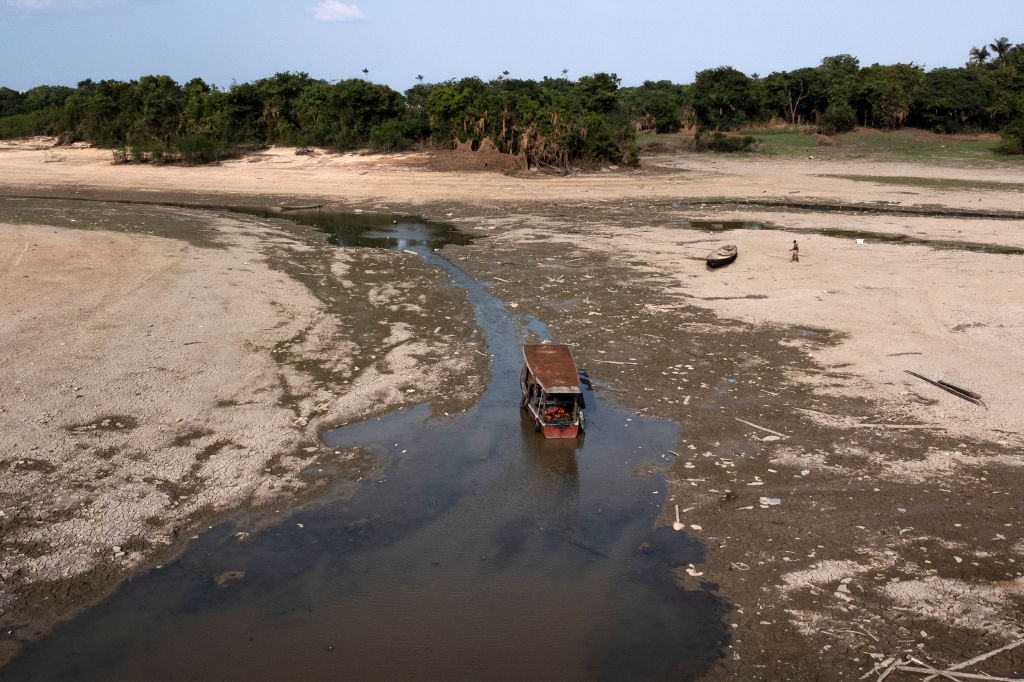The Facts
On Monday, the river port in Manaus — a city in Brazil's Amazon rainforest where the Negro River meets the Amazon River — recorded a water level of 13.59 meters, the lowest observed level since 1902.
In July this year, the Negro River — also known as the Black River — was flowing at 28 meters.
The Spin
Narrative A
Human activities and climate change have intensified Amazon's dry season, which has been observed to be around one month longer than in previous decades. The ecological jewel that mixes several ecosystems and accounts for more than half of tropical forests in the world is in big trouble. Time is running out to save the Amazon from turning into a savanna.
Narrative B
It's easy to dismiss any extreme weather event as a consequence of climate change, but in reality, they're usually influenced by a myriad of factors that have nothing to do with global warming. More research is needed before establishing any direct causal link between the two.
